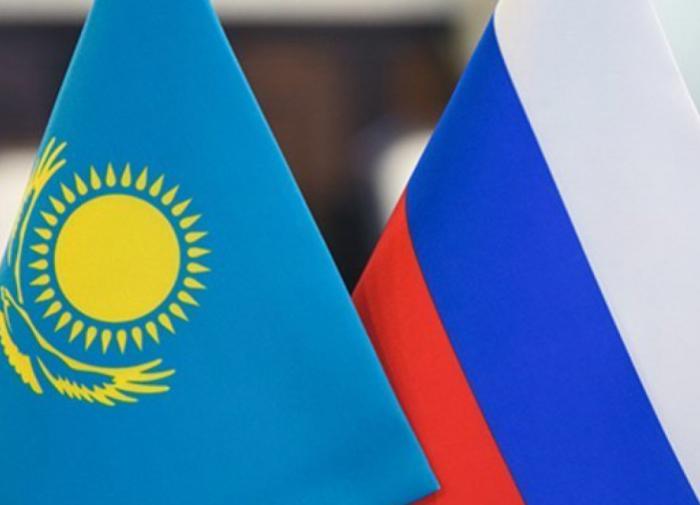Is there a place in the world where Russia is loved? Kazakhstan is not one of them for sure
Russian Foreign Minister Sergei Lavrov penned an article about Kazakhstan, from which it becomes clear that Russia is losing the battle for its people even the countries where the Russian-speaking population counts millions of people, and even in the countries that live at Russia's expense.

Lavrov underestimated Russophobia in Kazakhstan
In his article "Russia and Kazakhstan: Cooperation Without Borders" Sergei Lavrov talks a lot about the fruitful cooperation between the two countries within the EAEU. It would be strange if the trade turnover between the two pillars of the Eurasian Economic Union were not growing.
Lavrov resorted to such expressions as
- team spirit
- alliance,
- good neighborliness,
- mutual benefit,harmony,
- consolidation.
It should be noted, however, that many in Kazakhstan are not happy about the fact that Russia is not offering an appealing integration idea.
Lavrov touched upon the issue of the article closer to the end of it.
"Unfortunately, we have recently witnessed a number of high-profile manifestations of xenophobia against Russian-speaking citizens of Kazakhstan. Separate cases are largely the product of the use of special information methods from the outside to fuel up local nationalism and discredit cooperation with Russia,” the Russian Foreign Minister said.
Lavrov clearly underestimates the problem here. The topic about external interference to discredit cooperation with the Russian Federation suggests that this is not narrow-minded nationalism, but a practice that the state permits for US NGOs, of which there are more than six dozen in Kazakhstan.
Many young people in Kazakhstan have been growing in the spirit of Russophobia for over 30 years. Moreover, the Ak Zhol party in the parliament of Kazakhstan proposes to rename regional centers that bear Russian names, remove the Russian language from the Constitution, adopt a bill recognizing Asharshylyk (Holodomor) that entails criminal liability for its denial and blames the USSR for this historical phenomenon. To crown it all, there are radical nationalists in the government of Kazakhstan that deal with issues of domestic policy.
Joint measures do not eradicate Russophobia
Lavrov further notes that the level of bilateral relations with Kazakhstan makes it possible to promptly take joint measures for each case.
"For this purpose, we resort to direct communication channels through the Foreign Ministry, law enforcement and justice agencies, as well as presidential administrations. The non-governmental sector, the expert and journalistic community of the two countries run well-coordinated work as well," Lavrov wrote.
Lavrov is exaggerating here. First, not every alarming case comes up. One can hardly notice "well-coordinated work" too. Suffice it to recall at this point that the mastermind of "language patrols", Kuat Akhmetov, escaped from justice, and no criminal case was filed against Arman Kani, the author of the proposal for concentration camps for Russian-speaking people. One is left to hope that Lavrov, through Aesopian language, advises his ally to take prompt action against Russophobes.
Kazakhstan will not promote the Russian language, this is Russia's mission
The conclusive part of the article addresses the need to stimulate Russian language studies in Kazakhstan. Addressing the population of Kazakhstan, Lavrov speaks of the unifying mission of the Russian language. He also reminds readers that, according to the Constitution of the Republic of Kazakhstan, "the Russian language is endowed with the official status and is used on an equal basis with the Kazakh language." He sees it as a plus for the young people of Kazakhstan, who "link their life and work with Russia and the CIS as a whole."
The head of the Russian Foreign Ministry pledges to continue "to provide an extensive support to schools, professional and higher educational institutions of Kazakhstan that train teachers and specialists to speak Russian."
If Sergey Lavrov could read the Kazakh press, he would see that the Kazakh society discusses something absolutely different.
In particular, they consider opportunities to switch to the Kazakh language in education, government institutions, business, while President Kassym-Jomart Tokayev advocates multilingualism (plus English) at schools, which negates the importance of the Russian language.
Sergei Lavrov would then see that Kazakh nationalists no longer post anti-Russian videos on the Internet, but they simply stopped posting explicit videos on the Internet, but they continue to do their job quietly.
Who stops Lavrov and the Foreign Ministry of Russia, similarly to the US State Department, from using special information techniques in the interests of Russia? Turkey is a bright example of this work: the Turkish economy is not flourishing, but the Turkish state always finds the money for projects of national importance, such as the Turan.
In modern conditions, when propaganda is becoming the main weapon in a n information war, the Russian Foreign Ministry has proved to be completely unprepared for it. Hiding the truth may lead to the reincarnation of the Ukrainian scenario in Kazakhstan.
Subscribe to Pravda.Ru Telegram channel, Facebook, RSS!


